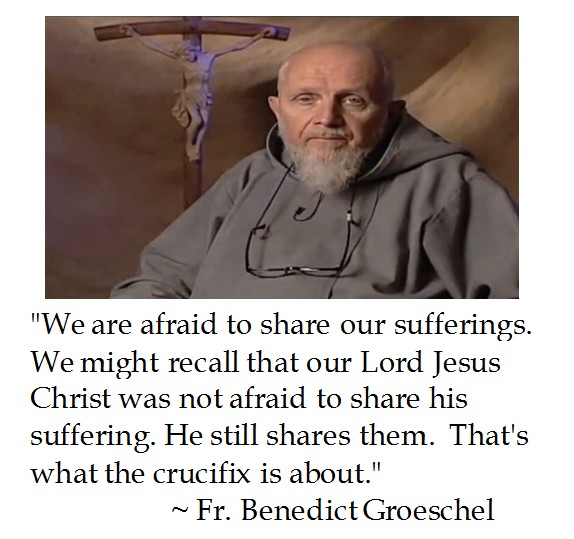Wednesday, April 29, 2015
Sunday, April 26, 2015
Thursday, April 23, 2015
Karekin II on the Canonization of the Armenian Genocide Martyrs
A hundred years ago, a genocide began which eliminated 1.5 million Armenian Christians through forced migration, torture and massacre. The world was fixated on the Great War in Europe and the many lives lost to were practically ignored Armenia was far away as well as the vigorous denials by the Turks,
One man at the time who did not turn a blind eye to the atrocity was Mehmet Celal Bey, a Turkish official who is known in some circles as the Ottoman Oskar Schindler.
The Armenian Supreme Patriarch Kerekin II canonized the 1.5 million victims of the Armenian Genocide as martyrs. Even today, the topic of the Armenian Genocide inspires tumult and vigorous denials from Turks. Pope Francis stated: The first genocide of the 20th century was that of the Armenians." The Turkish Foreign Ministry immediately shot back that Pope Francis' remarks were one-sided. When that demarche proved insufficient, Ankara summoned the Vatican ambassador for an explanation and later recalled Turkey's Ambassador to Rome. The Turkish Foreign Minister Mevlut Cavusoglu noted: "Religious authorities are not the places to incite resentment and hatred with baseless allegations." Turkey's position is that the 1.5 million victim figure is disputable and that any deaths were due to World War I.
Even after 100 years, denial is not just a river in Egypt.
The Centennary of the Armenian Genocide is instructive as the world currently is seeing a massacre of Christians by Muslim extremists, like ISIS, Boko Haraam and Al Shabaab, and much of the so called civilized world is non-plussed by the atrocity and believes that it does not affect them. Or our feckless leaders acknowledge the horrific event but never name the perpetrators (radical Islamism) or do not acknowledge the identity of the victims (Christians or Jews).
Justifying Georgemas
 |
| British Great War Recruiting Poster |
According to the Gregorian calendar, April 23rd is the Feast of St. George (or Georgemas). The Orthodox also admire the attributes of St. George but follow the Julian calendar which marks the feast on May 6th. St. George born in Syria Palestrinia in the late Third Century who served as an officer in the Roman army that guarded the Emporer Diocletian, but who was martyred for not renouncing his Christian faith. The emperor tried to bribe George to renounce his faith and tortured him, but to no avail. Before he was decapitated, St. George gave all of his wealth to the poor.
St. George is one of the most venerated saints in the Catholic Church, among Anglicans, Orthodox, East Syrian churches. Even Muslims revere this honorable military man. In the Twelfth Century a legend was attached to St. George about slaying a dragon. The standard Orthodox icon of St. George depicts him slaying a dragon with a woman in the background.
The dragon is generally understood as being both Satan and the monster from his own life (Diocletian). The woman in the background is Alexandra, the wife of Emperor Diocletian. Crusaders credit an appearance of St. George. This was probably legend which traveled back with the Crusaders from the Holy Land and was embellished in courtly Romance retellings.
Legend has it that a plague bearing dragon came down from the mountains and terrorized the countryside. The dragon could not be appeased with ransom of livestock. This dragon would not stop his rampage unless the King tied a young maiden to an oak tree in the center of the village.
The King's nobles used a pigeon to decide what to do. If the bird flew to the east then, they must take the King's own daughter Sabra and tie her to a tree, as the dragon demanded. The pigeon flew off to the east. As the knight rode back in triumph with the princess
But as fate would have it, the pigeon managed to attract the attention of a knight called George and guided him back to the princess. Just as the dragon was about to devour the princess, the good knight clad in armor fortified himself with a sign of the cross and then brought the fight to the dragon. George cunningly slowed down the dragon by driving a ball of pitch down his throat, and then speared the dragon with a grievous wound with his lance.
 |
| The Wedding of St. George and Princess Sabra by Dante Gabriel Rossetti (1857) |
According to Eastern versions, the knight rode back to the city along with the princess and the dragon in tow. As George approached the city, he promised to slay the dragon if the town would become baptized Christians. Fifteen thousand men took to the baptismal waters and George slayed the dragon with his trusty sword Ascalon (recalling the city Ashkelon in Israel). The king was so grateful that he bestowed nobility (some say Sainthood) to George and gave his daughter Sabra's hand in marriage and promised to build a church were the dragon was slain.
St. George is the patron saint of England yet it is not a public holiday in England. The reasons why celebration of Georgemas is muted are cultural, historical and now tinged with political correctness.
St. George was neither English nor roundly associated with England, even though King Edward III formed the Order of the Garder under the patronage of St. George in 1348. The Reformation played a part as Protestants did not care much for saints' days. In addition, celebration of St. George's day has been in decline since the Act of Union between England in Scotland completed in 1707. In today's world, the Daily Telegraph reports that many English people are concerned that national symbols like St. George can be considered racists,

Aside from the fact that many pubs in England are named after George and the dragon, it makes one wonder why this legend matters. Modern man is quick to dismiss myths (unless it is anthropogenic global warming), but this is short sighted. Myths convey essential truths although the romantic story elements may not be exact. For instance, the story of George Washington chopping down the cherry tree may have been apocryphal but it does "I can not tell a lie" does illustrate some of the virtues of Washington's transcription of "The Rules of Civility and Decent Behavior", which molded the first President's life and were put into practice at the founding of the American Republic.
The reason that St. George matters so much to the English is that the legend reinforces characteristics which the English admire and seek to emulate. St. George is a knight who exemplified chivalry. St. George and the dragon also champions the little guy as well as the triumph of good over evil. The versions which depict him making the sign of the cross depict deep dedication to principles (if we dare not declare faith). These romanticized virtues along with the more verifiable versions of his hagiography make St. George a man worthy (bank holiday or not) for Englishmen to emulate.
Wednesday, April 22, 2015
Joyce Kilmer on Trees
Trees
I think that I shall never see A poem lovely as a tree.A tree whose hungry mouth is prest Against the earth’s sweet flowing breast;A tree that looks at God all day, And lifts her leafy arms to pray;A tree that may in summer wear A nest of robins in her hair;Upon whose bosom snow has lain; Who intimately lives with rain.Poems are made by fools like me, But only God can make a tree.
~Joyce Kilmer
Monday, April 20, 2015
Sunday, April 19, 2015
Thursday, April 16, 2015
Pope Francis on Gender Theory

Pope Francis has been expressing his faith based perspectives on Gender Theory and the basis of a covenantal sacramental marriage.
These pronouncements may cause a media metanoia tamping down euphoric expectations of alternative lifestyle advocates for the October 2015 Synod on the Family. Moreover, it would seem that The Advocate may rue naming Pope Francis the person of the year in 2013.
Tuesday, April 14, 2015
Lincoln: "There is no place I so much desire to see is Jerusalem."
As we commemorate the Sequicentennary of the assassination of our sixteenth President, it is worth noting what were Abraham Lincoln's last words.
On Good Friday of 1865 the President had taken his wife on a carriage ride and later to see the play "Our American Cousins" at Ford's Theater in Washington, DC. The Civil War was coming to a victorious conclusion. Although Lincoln had just began his second term, he was contemplating his post presidency plans with his wife Mary Todd Lincoln.
President Lincoln did not want to return to Springfield, Illinois after his term ended. He longed for anonymity abroad, including visiting Jerusalem. It is said that Lincoln whispered in his wife's ear about visiting the Holy Land before John Wilkes Booth shot him.
It is ironic that Lincoln had been an aggrieved atheist (or perhaps a soul lashing out of anger at God) for part of his life. But the many tragedies which President Lincoln suffered as an adult along with the weight of the War Between the States was met with good Christian pastoring. Lincoln transformed the suffering into a holy impulse.
Could this be just hope filled hagiography, as Mary Todd Lincoln was not exactly a stable source. Maybe. But it is much more believable than the LGBTQQ? community revisionist history claiming Lincoln as a bisexual --what stuff!
Labels:
Abraham Lincoln,
Atheism,
Christianity,
Faith,
History,
Quotes,
Video
Sunday, April 12, 2015
Nikita Khrushchev on God
On April 12th, 1961, Cosmonaut Yuri Gagarin was the first man in outer space as his Vostok I spacecraft orbited the Earth in a 108 minute flight. Upon his return, Soviet Premier Nitika Khrushchev mocked religion by claiming that Gagarin announced: "I went up into space and did not see God anywhere." This was triumph for Soviet atheism at the height of the Cold War.
But like many aspects of the Soviet Space program, not everything was accurate. Despite the brash bluster of Comrad Khrushchev, Gagarin was never heard uttering that controversial quip. In addition, Gagarin was a baptized member of the Russian Orthodox Church who was actually quite devout (but privately so as not to scandalize the Soviet state and their scientific socialism hagiography).
St. Faustina Kowalska on Suffering
The day that he was elected to fill the Chair of St. Peter, Pope Benedict XVI spoke about Pope St. John Paul II's devotion to the Divine Mercy:
"We listen with joy to the proclamation of the year of mercy... Jesus Christ is divine mercy in person. To find Christ means to find the mercy of God...The day of vengeance and the year of favor coincide in the paschal mystery, in Christ, dead and risen. This is the vengeance of God: He himself, in the person of the Son, suffered for us. The more we are touched by the mercy of the Lord, the more we are in solidarity with his suffering, the more disposed we are to complete in our flesh 'what is lacking in Christ's afflictions'."
This message of divine mercy was echoed throughout Pope Benedict's papacy.
Friday, April 10, 2015
Ben Carson on Faith and Hip Hop Culture
Dr. Ben Carson, the inchoate Republican presidential candidate, is proud that he is not the typical politician. His cultural comments prior to formally announcing his candidacy underscore that point.
Carson got into trouble in March when conducting as he announced his Exploratory Committee during an interview with CNN's Chris Cuomo on whether homosexuality is a choice. Dr. Carson cited the prison gay phenomenon. That's provocative for a pundit but foolish for a Presidential candidate, as the topic is outside the bounds of the Executive Branch and is rife for ridicule.
Dr. Carson is continuing his social commentary. During an appearance on a black oriented radio station, Dr. Carson condemned hip hop culture as turning away from traditional values which had helped African-Americans endure slavery, Jim Crow laws and the scourge of segregation. When pressed on the pronouncement, Carson clarified that he condemned the hip hop community which dismisses anything to do with Jesus Christ.
Hip Hop with a bowed head is hard to imagine, as the genre projects raw energy of anger and a spirit of escalation. The recent remake of Annie (2014) which was produced by Will Smith has been criticized for bringing hip hop's materialistic ethos to the silver screen. But Dr. Carson's broad condemnation of the hip hop community can be aptly be challenged by pointing to a breakout hit early in Kanye West's career "Jesus Walks" in which the lyrics cautiously seek God's wisdom in dealing with urban issues in a seedy secular society.
Weighing the pros and cons of hip hop is an interesting if inflammatory discussion point, but it is peripheral in discerning who should occupy the Oval Office for four years.
Then Ben Carson wrote penned an op/ed for the Washington Post's spring cleaning series boldly standing against selfies. For a serious candidate, such a piece could be construed as humanizing or more cynically as a way to garner earned media. However, with Carson's string of peripheral points, he is losing his credibility of being a thoughtful, soft spoken voice.
Many Christian conservatives pined for Dr. Carson to represent them. His media over the past month seem to be pivoting more towards social commentary rather than a religious appeal. It is frustrating to see an appealing candidate marginalize himself by continually straying into social commentary in the proto-campaign rather than build a solid foundation to construct a political platform for the primaries. From this political animal's vantage point, considering faith and hip hop culture or lamenting about narcissism of selfies are not the way accomplish that objective.
Labels:
Annie,
Dr. Ben Carson,
Faith,
Hip Hop,
Jesus Walks,
Kanye West,
Pensee,
Politics,
Quotes,
Video,
Will Smith
Thursday, April 9, 2015
Dietrich Bonhoeffer on the Cost of Discipleship
 Pastor Dietrich Bonhoeffer was hung at the Flossenbürg concentration camp on April 9th 1945 for following his conscience and participating in the German Resistance against the Nazi regime. Bonhoeffer well knew the cost of answering the call to discipleship. Yet his faith was so deep that as he was being led away to an eventual execution, he passed along a message to Bishop George Bell of Chichester: "This is the end — for me the beginning of life."
Pastor Dietrich Bonhoeffer was hung at the Flossenbürg concentration camp on April 9th 1945 for following his conscience and participating in the German Resistance against the Nazi regime. Bonhoeffer well knew the cost of answering the call to discipleship. Yet his faith was so deep that as he was being led away to an eventual execution, he passed along a message to Bishop George Bell of Chichester: "This is the end — for me the beginning of life."Tuesday, April 7, 2015
Barack Obama Questions Christian Love at White House Easter Breakfast
As Christians continued to celebrate the miracle of the Resurrection at a Tuesday Easter Prayer Breakfast at the White House, President Barack Obama could not resist poking at the Nazarene's faithful. While Mr. Obama's remarks does echo some of the Paschal message, he flippantly questioned some perceived deficiencies in Christian Love (presumably an oblique reference to Indiana's RFRA law controversy).
It seems rather rude for the President to turn a prayer breakfast of the most important holiday into a partisan punch line. Unfortunately, this is not uncharacteristic of the Obama Administration. Last year, President Obama "spontaneously" called on the controversial gay Episcopal Bishop Vichy "Gene" Robinson for a closing prayer.
What was striking about President Obama's 2015 Easter Prayer Breakfast remarks is that he failed to acknowledge the massacre and martyrdom of 148 Christians at Garissa University College in eastern Kenya on Maudy Thursday by Islamist terrorists. Of course, when Mr. Obama did address the latest Kenyan atrocity, the President failed to mention the faith of both the "folks" who were slaughtered as well as the creed which inspired the dastardly deed. In addition, when President Obama spoke about the bloody beheadings of 21 people in Libya by ISIS he referred to them as "Egyptian citizens" rather than as Coptic Christians which prompted their martyrdom.
| Icon of the "New Martyrs" by Tony Rezk. Coptic Pope Tawadros II declared Feb. 15th their feast day |
Of course, clearly identifying victims of the contemporary jihad by radical would wreck the impression that Christianity is about the Crusades and the Inquisition as President Obama alluded in his 2015 National Prayer Breakfast remarks.
Labels:
Al Shabob,
Art,
Barack Obama,
Christianity,
Coptic,
Easter,
Faith,
Gene Robinson,
ISIS,
Islamists,
Kenya,
National Prayer Breakfast,
Quotes,
Religious Liberty,
RFRA,
T.R.O.P.,
Tawadros II,
Tony Rezk,
Video
Sunday, April 5, 2015
Saturday, April 4, 2015
Friday, April 3, 2015
Subscribe to:
Posts (Atom)




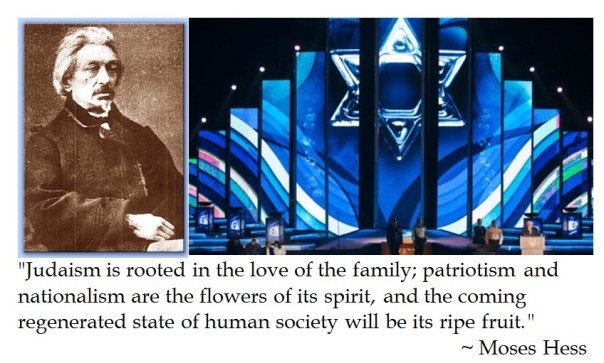



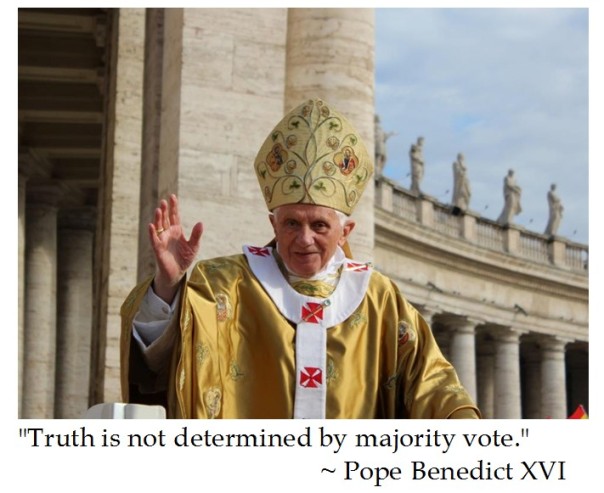
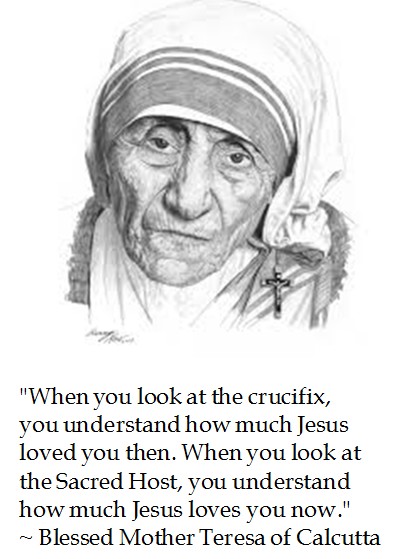


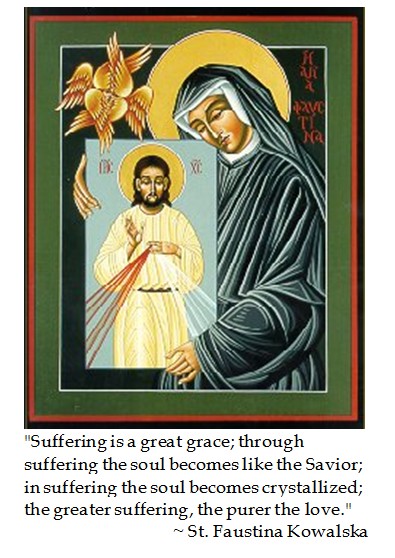




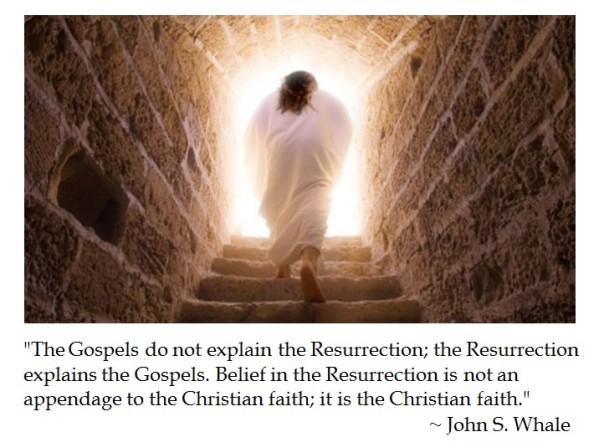 </
</



